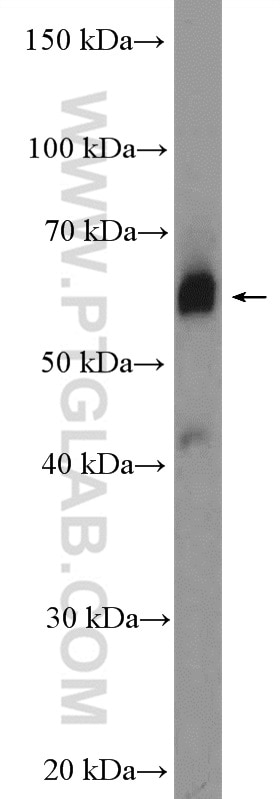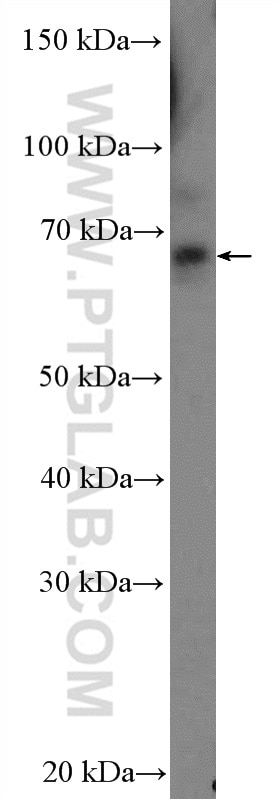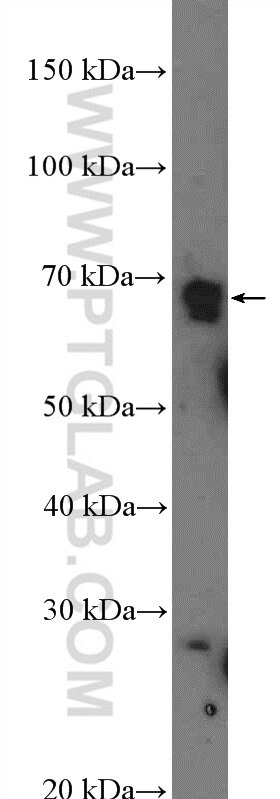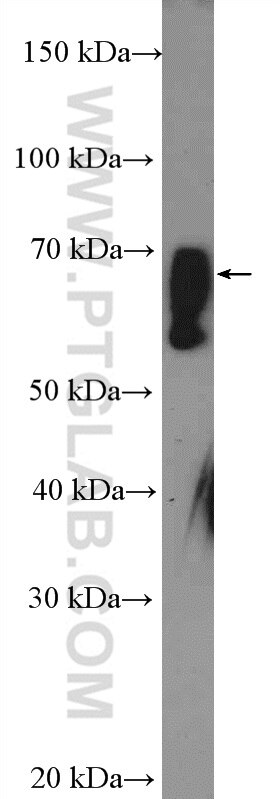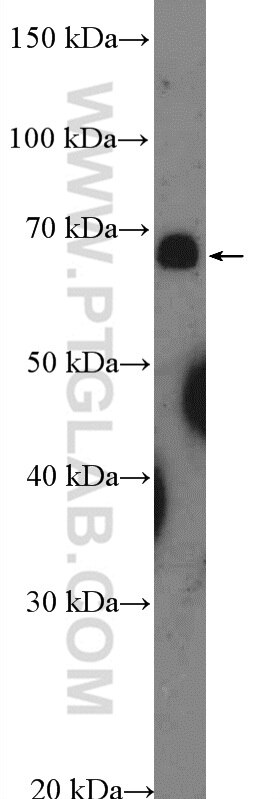Anticorps Polyclonal de lapin anti-ZNF169
ZNF169 Polyclonal Antibody for WB, ELISA
Hôte / Isotype
Lapin / IgG
Réactivité testée
Humain, souris
Applications
WB, ELISA
Conjugaison
Non conjugué
N° de cat : 26344-1-AP
Synonymes
Galerie de données de validation
Applications testées
| Résultats positifs en WB | tissu d'intestin grêle de souris, cellules HeLa, cellules HepG2, tissu hépatique de souris |
Dilution recommandée
| Application | Dilution |
|---|---|
| Western Blot (WB) | WB : 1:500-1:1000 |
| It is recommended that this reagent should be titrated in each testing system to obtain optimal results. | |
| Sample-dependent, check data in validation data gallery | |
Informations sur le produit
26344-1-AP cible ZNF169 dans les applications de WB, ELISA et montre une réactivité avec des échantillons Humain, souris
| Réactivité | Humain, souris |
| Hôte / Isotype | Lapin / IgG |
| Clonalité | Polyclonal |
| Type | Anticorps |
| Immunogène | ZNF169 Protéine recombinante Ag23805 |
| Nom complet | zinc finger protein 169 |
| Poids moléculaire observé | 68 kDa |
| Numéro d’acquisition GenBank | BC047702 |
| Symbole du gène | ZNF169 |
| Identification du gène (NCBI) | 169841 |
| Conjugaison | Non conjugué |
| Forme | Liquide |
| Méthode de purification | Purification par affinité contre l'antigène |
| Tampon de stockage | PBS with 0.02% sodium azide and 50% glycerol |
| Conditions de stockage | Stocker à -20°C. Stable pendant un an après l'expédition. L'aliquotage n'est pas nécessaire pour le stockage à -20oC Les 20ul contiennent 0,1% de BSA. |
Informations générales
ZNF169 (Zinc finger protein 169) is a 603 amino acid nuclear protein that contains one KRAB domain and thirteen C2H2-type zinc fingers. ZNF169 is highly expressed in kidney and weakly expressed in spleen, liver, small intestine and heart, where it functions as a transcription regulator.
Protocole
| Product Specific Protocols | |
|---|---|
| WB protocol for ZNF169 antibody 26344-1-AP | Download protocol |
| Standard Protocols | |
|---|---|
| Click here to view our Standard Protocols |
